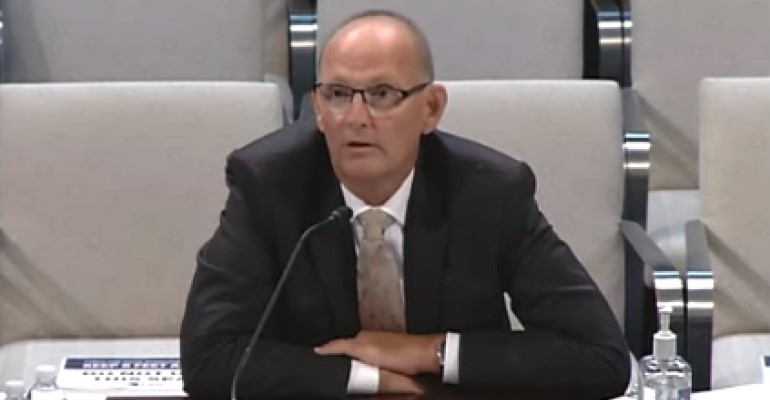Congressional and industry action likely needed in response to report findings.

The U.S. Department of Agriculture is nearing the conclusion of its ongoing investigation into the cattle markets following a fire at Tyson's Holcomb, Kan., beef plant in 2019, according to comments made by USDA undersecretary for marketing and regulatory programs Greg Ibach.
USDA’s Packers & Stockyards Division was instructed to launch an investigation in August 2019 regarding beef pricing margins, and a report has yet to be released. After market prices showed potential concerns again following COVID-19-induced price drops, USDA also said it would expand the scope of the Holcomb investigation to cover market disruption related to the pandemic.
During a July 21 hearing in the House Agriculture Committee’s nutrition, oversight and department operations subcommittee, subcommittee ranking member Dusty Johnson (R., S.D.) questioned Ibach on the status of the investigation. Ibach told Johnson USDA is “nearing conclusion” and looks forward to releasing its report “in the very near future.”
Ibach noted, “I think there are going to be several things that come out of that report that members of the committee, as well as the industry, will want to consider to discuss.” Ibach said he anticipates that there may also be actions the committee and industry will want to consider as a result of that report.
“Our producers have waited over a year for answers from USDA’s investigation into the volatile cattle markets,” Johnson said. “It’s something I’m eager to see and will continue to push for.”
USDA also has initiated an investigation, and the U.S. Department of Justice announced that it had issued civil investigative demands to the nation’s four largest meat packers.
National Cattlemen’s Beef Assn. (NCBA) president Marty Smith sent a letter to President Donald Trump on April 8 requesting that the government act quickly to investigate the striking disparity between boxed beef prices and cattle prices in the futures and cash markets during the current COVID-19 crisis and following the beef packing plant fire in Holcomb last August.
“Fair and functioning cattle markets are vital to the sustainability of our industry,” Smith wrote in the letter to Trump. He also pointed out the importance of keeping the beef supply chain moving during this time of volatility and instability.
Market impact
Producers who market in the negotiated cash market are being harmed, according to a cattle group hoping to see changes to the marketing arrangements allowed from the major cattle processors.
R-CALF USA stated July 21 that in an unpublished 2014 investigative report by the USDA Packers & Stockyards Division (formerly the Grain Inspection, Packers & Stockyards Administration, or GIPSA) titled "Investigation of Beef Packers' Use of Alternative Marketing Arrangements," the agency found, based on 2009 data, that when the volume in the fed cattle cash market was nearly 40%, alternative marketing agreements depressed the prices paid for cattle on the cash market.
“Based on GIPSA's findings, we estimate that nationwide domestic cattle prices in the cash market were reduced by as much as $33.28 per head (based on a 1,300 lb. steer) in 2009,” R-CALF USA said.
In regions such as Kansas, Texas, Oklahoma, New Mexico and Colorado, where the volume of the cash market was significantly less than the national average, R-CALF USA estimated based on the GIPSA findings that the harm to the cash market was much greater: as much as $50.44 per head in Kansas, $44.46 per head in Texas/Oklahoma/New Mexico and $42.77 per head in Colorado.
R-CALF USA chief executive officer Bill Bullard said this report, based on actual market data from 2009, firmly supports Senate bill S. 3693 from Sens. Chuck Grassley (R., Iowa) and Mike Tester (D., Mont.) and House bill H.R. 7501 from Rep. Cindy Axne (D., Iowa) that restores the integrity of the thinning cash market by requiring packers to participate in the negotiated cash market at the 50% level at the least.
About the Author(s)
You May Also Like



.png?width=300&auto=webp&quality=80&disable=upscale)

